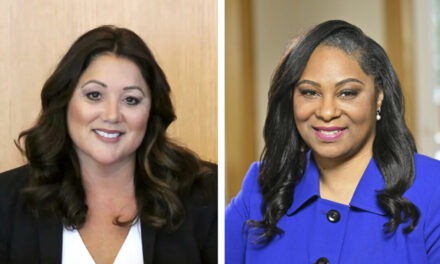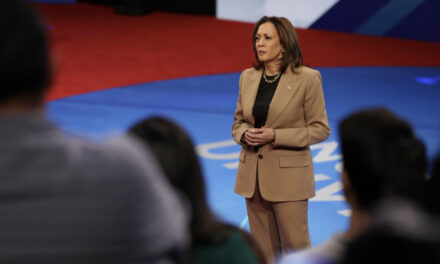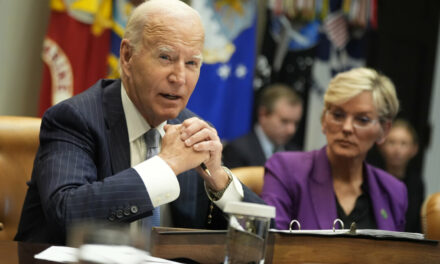We support our Publishers and Content Creators. You can view this story on their website by CLICKING HERE.
The decision marks only the second time The Washington Post has chosen not to endorse a candidate since it began the practice in 1976.
Jeff Bezos, owner of The Washington Post, defended the paper’s decision not to endorse a presidential candidate in the upcoming election, saying that endorsements create a perception of bias that has no impact on elections and contributes to the public’s loss of faith in traditional media.
“What presidential endorsements actually do is create a perception of bias. A perception of non-independence. Ending them is a principled decision, and it’s the right one.”
It marks only the second time The Washington Post has chosen not to endorse a candidate since it began the practice by endorsing the Democratic Party’s presidential nominee Jimmy Carter in 1976.
This break with the decades-long practice was initially framed by CEO and publisher William Lewis as a return to the paper’s roots, suggesting that the days of endorsing a candidate were over.
Lewis stated that the paper saw this decision “as a statement in support of our readers’ ability to make up their own minds on this, the most consequential of American decisions — whom to vote for as the next president.”
Bezos said in his op-ed that Eugene Meyer, publisher of The Post from 1933 to 1946, shared this view, reiterating Lewis’s explanations that the paper was returning to its original editorial policy.
On Oct. 25, The Post shared reports by anonymous sources who said that the publication’s editorial board was ready to endorse Vice President Kamala Harris, but Bezos blocked it.
Bezos expressed his regret about the “inadequate planning” of this decision. He acknowledged that an executive from his space company, Blue Origin, met with former President Donald Trump the same day The Post’s decision was made. He rebutted accusations of any “quid pro quo,” stating that neither campaign was consulted about the decision, which he said was made entirely internally.
“I sighed when I found out, because I knew it would provide ammunition to those who would like to frame this as anything other than a principled decision. But the fact is, I didn’t know about the meeting [with Trump] beforehand,” Bezos wrote, according to The Post. “There is no connection between it and our decision on presidential endorsements, and any suggestion otherwise is false.”
The Washington Post was founded in 1877 by Stilson Hutchins and went through several owners in its early years before Eugene Meyer purchased it out of bankruptcy in 1933. Jeff Bezos acquired the newspaper in 2013 for $250 million.
Other Newspapers Decline to Endorse
The Post was joined in its decision by The Los Angeles Times, USA Today, and more than 200 publications within the USA Today Network, including The Arizona Republic and The Detroit Free Press.
Anton said that several local-level editors may choose to endorse state or local candidates, but most appear focused on endorsing key issues affecting their communities rather than individual candidates.
This decision returns USA Today to its previous posture, as it has only explicitly endorsed two presidential candidates since its founding in 1982: Hillary Clinton in 2016 and Joe Biden in 2020.
“In this way, with this clear and non-partisan information side-by-side, our readers could decide who would be worthy of being President for the next four years,” he said. “Instead of adopting this path as suggested, the Editorial Board chose to remain silent and I accepted their decision.”
The move triggered the departure of the newspaper’s editorial section editor Mariel Garza.
Lack of Credibility
Bezos said in his op-ed that the choice to keep his media outlet on the sidelines was also based on the belief that the public had lost trust in traditional U.S. media, in part due to perceived bias, where certain agendas and people are considered given favorable coverage.
According to Bezos, a presidential endorsement could create a perception of bias for readers and further damage credibility. While staying out of the election and not backing a candidate probably wasn’t enough to restore trust, he sees it as a start. He said that what the media has been doing “is clearly not working.”
“By itself, declining to endorse presidential candidates is not enough to move us very far up the trust scale, but it’s a meaningful step in the right direction,” he said.
Bezos added that a lack of credibility is an issue in all media, and as a result, people are turning to podcasts and social media for information, which he said are often not held to any editorial standards.
“While I do not and will not push my personal interest, I will also not allow this paper to stay on autopilot and fade into irrelevance — overtaken by unresearched podcasts and social media barbs — not without a fight,” Bezos wrote. “To win this fight, we will have to exercise new muscles. Some changes will be a return to the past, and some will be new inventions. Criticism will be part and parcel of anything new, of course. This is the way of the world.”
Ton Ozimek contributed to this report.

 Conservative
Conservative  Search
Search Trending
Trending Current News
Current News 







